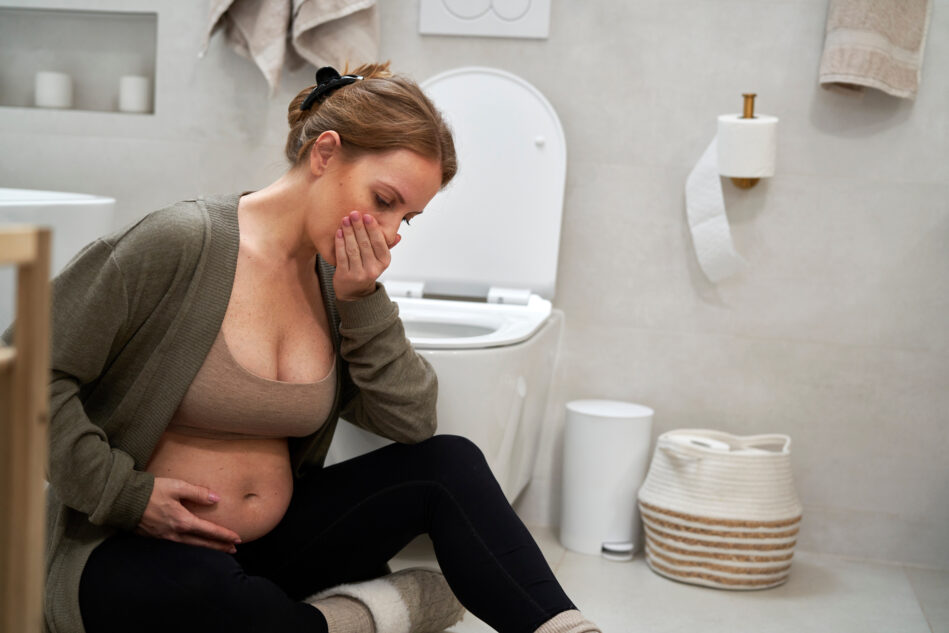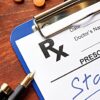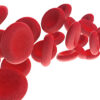One person demanding proof from drug companies saved millions of US babies. Don’t forget her lesson.
Morning sickness can be debilitating. It’s certainly uncomfortable. And for most pregnant women it’s a rite of passage. Very occasionally morning sickness causes so much nausea that the pregnant woman becomes dehydrated causing risk to the pregnant woman and fetus. In those cases women generally go to the hospital.
Most other pregnant women have varying degrees of discomfort and interruptions to their lives. Recently Kim Kardashian (I don’t really have to explain who she is, right?) claimed to use Diclegis for relief from morning sickness. The FDA has approved Diclegis based on a trial that included 130 pregnant women and a health physical for mother and baby at birth.
Nevertheless, the FDA took exception to KKW’s Instagram about the med. According to The Verge, “In a letter dated August 7th, the FDA’s Office of Prescription Drug Promotion requested that Kardashian take down a post promoting Diclegis, a drug that combats morning sickness. The office reviewed Kardashian’s post in response to a complaint about its validity and found that it was ‘false and misleading… it omits material facts.’
Even though the FDA approved the drug, it drug hasn’t been studied in women with hyperemesis gravidarum, a pregnancy condition that leads to nausea, vomiting, and dehydration. It can also cause severe drowsiness. Those side effects weren’t clearly stated in Kim K’s post. But given the awful history of 2 previous morning sickness drugs, caution is warranted.
I wrote about Diclegis 2 years ago:
I’m a skeptic, a pessimist, and a fearmonger. I don’t have a medical degree and I’ve never been pregnant. But I ask: how do we know that there won’t be some unanticipated outcome for those babies born who were exposed in utero? How many times have women been told that a drug or food or drink was safe during pregnancy and it wasn’t? (Thalidomide, DES, smoking, swordfish)
These 130 babies were born passing a physical at birth. How thoroughly were they tested? How many years into the babies’ lives were they followed? I’m sure I’m wrong to worry. But unless the morning sickness is so severe that it threatens the viability of the pregnancy or the mother’s life, is it worth any risk? (According to Wikipedia, there is no significant difference in neonatal death rates in infants born to mothers who experienced HG.) The expectant mother gains some comfort and a day and a half of work.
Risk: probably none
Benefit: Not much, 1.5 more days at work, less morning sickness
But First There Was Thalidomide
Now is a good time to remember and honor an American hero who saved unknown thousands of babies from being damaged by another drug given to women during pregnancy, thalidomide. Dr. Frances Oldham Kelsey died Aug. 7 at age 101.
When Dr. Frances Oldham Kelsey was a newly hired doctor at the FDA she was handed the thalidomide file to approve. Many countries had already approved the drug, and the US manufacturer had warehouses full of the stuff ready to ship. But she had the temerity to question existing thalidomide studies. Under increasing pressure to approve the drug, she asked for more information, and then more again, refusing to push it through. The manufacturer, the William S. Merrell Company of Cincinnati, complained to Dr. Kelsey’s bosses, calling her a petty bureaucrat.
“But by late 1961, the terrible evidence was pouring in. The drug … was causing thousands of babies in Europe, Britain, Canada and the Middle East to be born with flipperlike arms and legs and other defects.”
The damages to babies’ limbs were immediate and appalling. Over time, it was discovered that thalidomide caused many fetal deaths, and those who survived experienced damage to their eyes, ears and internal organs. Thalidomiders (those born with thalidomide damages) are in their 50s today, if still alive. The deformities cause stress on their joints and degeneration of their bodies, leading to early death.
In a 1965 Washington Post article (please read it — great article), Dr. Kelsey said she realized at the time that she could have been considered “unreasonable” had thalidomide proved to be as safe as others believed. That said, she wasn’t ready, ever, to give up. As the article goes on to say: “[Kelsey] intends to go on ‘playing for that 10th chance in 10’ to assure safety in new drugs, ‘to the best of my ability.’ For 20 years she taught pharmacology. She knows the dangers and she has not the slightest intention of forgetting them.”
Saved from Harm
The scope of damage is impossible to gauge. Thalidomide was sold in more than 46 countries. Many fetuses died in the womb, and those born with damages were sometimes hidden, abandoned or died early. Because of that we’ll never know how many thalidomide babies were born. The Washington Post reported that Germany was anticipating 3,500 to 6,000 deformed babies. A Canadian governmental document puts the number of people worldwide still living with thalidomide damages at about 5,000. In the US there are only 26 known Thalidomiders. We have Dr. Kelsey to thank.
One result of the thalidomide tragedy was the 1962 enactment of the Kefauver-Harris Drug Amendments that mandated “substantial evidence” of a drug’s effectiveness as developed by “experts qualified by scientific training,” in addition to evidence of a drug’s safety, and provided for greater oversight of drug investigations, the FDA wrote in a blog.
DES, Pregnant Women Again Abused by Medicine
The thalidomide story is a sobering warning not to rush a new drug to market, yet there have been other “wonder drugs” that a less vigilant FDA has approved. Just a few years before thalidomide, the FDA approved diethylstilbestrol (DES), also for pregnant women. It was given to an estimated 5 million women in the US alone. As the first synthetic estrogen and also the first endocrine disruptor, it caused cancer in some of the mothers who took it, and cancer and reproductive-organ damage to many of the children born to them. Now, we’re seeing damages in the grandchildren as well. It took years after cancer was linked to DES to get that drug off the market. (For more information, visit www.DESAction.org.)
It’s a good reminder that no drug is good or bad. Drugs have no ethics so scientists have to determine if drugs are being used for good or only for gain. The FDA is stronger today — though not as strong or as independent of drug companies as it should be.
What would you do for a healthy baby? Anything you could, I’m sure.






